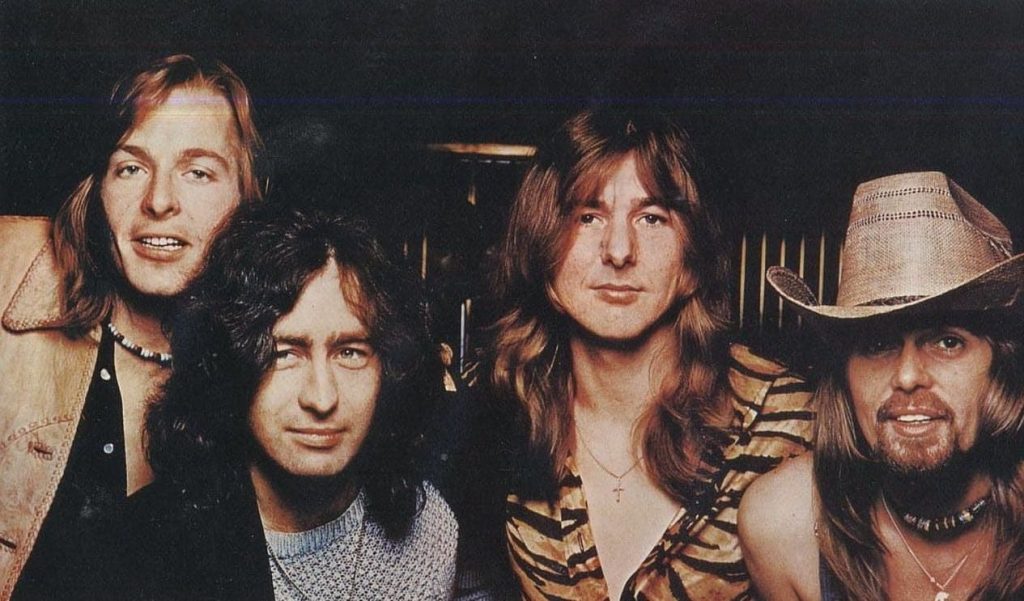
A Poetic Journey Through Freedom and Solitude
“Seagull”, the haunting closing track on Bad Company’s self-titled debut album from 1974, is a song that lingers in the heart long after it fades. Written by Paul Rodgers and Mick Ralphs, this understated acoustic ballad strips away the bravado of rock anthems to reveal a deeply introspective and meditative piece. It is a song that speaks of freedom, solitude, and the inevitable search for peace, carried aloft by the imagery of a seagull soaring over endless seas.
While many of the tracks on Bad Company capture the swagger and energy of a rock band coming into their prime, “Seagull” is a quiet, reflective counterpoint. The song’s acoustic simplicity, built on Ralphs’ delicate guitar work and Rodgers’ soulful, restrained vocals, allows the profound emotional weight of its lyrics to shine through. It feels like a whispered conversation, intimate and deeply personal, as if Rodgers is not just singing to the listener but to himself.
The lyrics of “Seagull” are steeped in metaphor, with the titular bird representing a spirit unshackled by earthly constraints. Rodgers’ opening lines set the tone for the journey ahead:
“Seagull, you fly across the horizon,
Into the misty morning sun.”
The seagull’s flight becomes a symbol of freedom, yet there’s an undercurrent of melancholy—an acknowledgment that even in freedom, there is loneliness. The song grapples with themes of escape, self-discovery, and the yearning for a place where one truly belongs. It is not just a celebration of independence but also a quiet lament for the connections and comforts left behind.
Musically, the song’s brilliance lies in its restraint. The stripped-down arrangement, driven by Ralphs’ acoustic guitar, creates an atmosphere of open space, much like the wide horizon described in the lyrics. The absence of a heavy rhythm section enhances this sense of expansiveness, leaving Rodgers’ voice to soar, unencumbered, like the seagull he sings about. The sparse instrumentation allows every nuance of Rodgers’ delivery to resonate, from the tenderness in his verses to the emotional weight in the chorus.
The recording itself has a raw, almost unpolished quality, which adds to its authenticity. It feels as though the band captured a moment of genuine vulnerability—a snapshot of introspection that could not be rehearsed or replicated. This authenticity is a hallmark of Bad Company’s music, but it reaches its pinnacle in “Seagull”.
Though never released as a single, “Seagull” has become a beloved track for fans, a hidden gem that speaks to the soul. It is a song that older listeners, in particular, hold close, as its themes of searching and longing resonate more deeply with the passage of time. For many, it evokes memories of quiet moments spent in contemplation, of standing on the edge of a vast sea and wondering where life’s winds will carry them next.
As the closing track on Bad Company, “Seagull” serves as a perfect bookend to an album that begins with the bold declaration of “Can’t Get Enough”. It reminds listeners that even the most fearless adventurers must pause to reflect, to look inward, and to find peace in the silence. In a world that often feels chaotic, “Seagull” is a timeless reminder of the power of stillness and the unyielding pull of freedom.